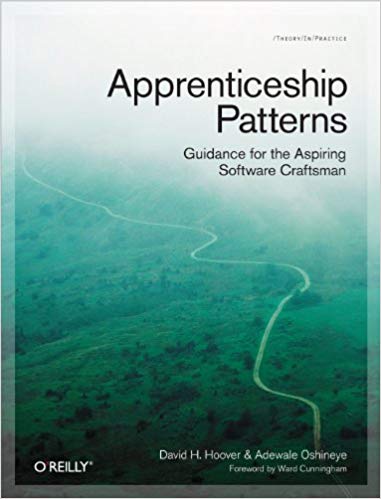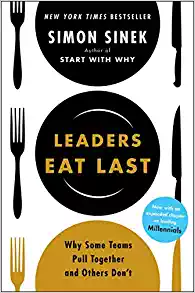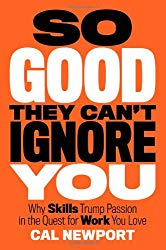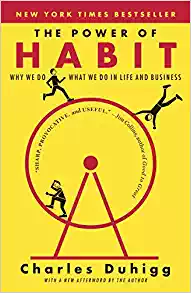Nonfiction
As a kid, I used to read a lot of science fiction and fantasy novels. A lot. I distinctly remember my mom being mad at me for reading too much. I particularly remember one Saturday where I read “Ender’s Shadow” without once closing the book. I started reading in the morning and continued reading through breakfast, riding in the car, driving to my grandmother’s house, eating lunch (I brought my precious book holder with me) and going back home. While these books had a significant role in shaping who I am today and my perspective on life, it’s only a few years ago that I read my first nonfiction book.
About four years ago I’ve read “Getting Things Done” by David Allen. It has profoundly changed my life. From an unorganized and procrastinating slob I’ve become a meticulous, ahhhh… slightly-less-procrastinating adult. While I don’t always perform my tasks in robot-like efficiency, I do a well enough job so that my life is in adequate order. More importantly, the really important things don’t fall through the cracks.
Seeing the success of this adulting process by a mere reading of a book (an audiobook, really), I started reading more nonfiction. Like GTD, a few caused a lasting change to my perspective on life. A few provided new vocabulary to express what I already knew or felt. A few were just… bad. But they at least let me practice skepticism and proved to me, by contrast, that I don’t just swallow up text without criticism.
The rest of this post will be dedicated to a (partial) list of these books, with my brief thoughts.
Disclaimer: links below are affiliate links.
Top Picks
Getting Things Done / David Allen
I’ve already mentioned how affecting this book was on my life. I manage every aspect in my life with GTD, from trivial stuff like doing the dishes (my wife is very happy with me getting organized, by the way) to reflecting on life goals.
The book itself is not exactly fun to read. The examples are weird and mostly relate to executives (“Say you wanted to improve your golf swing…”), but the system is unbelievably flexible and I’ve found every detail described to have profound purpose. A must read.
So Good They Can’t Ignore You / Cal Newport
Ever got advice to “follow your passion”? Cal Newport does away with that cliché in a book so obviously written by a computer scientist it’s hilarious. While I was sure I was going to be a programmer since I was in the fourth grade, this book did change my perspective on a lot of career decisions. Whether it’s going the startup or big-corporation route, accepting a promotion to manager and so on. I recommend this book for everyone, especially those faced with choosing a career or a fork in the road.
If you liked So Good They Can’t Ignore You, consider also reading his following book, Deep Work. It’s a very nice read on how to actually get good at anything. I’ve also read the recently released book Digital Minimalism, but it reiterated a lot of practices I’m already doing, and it didn’t have a strong impact on me.
The Checklist Manifesto / Atul Gawande
Atul Gawande explores the concepts of what makes a good checklist through the worlds of aviation, medicine and construction. Honestly, I never even thought about how skyscrapers are built and how come their failure rate is so amazingly low for such a complex project.
The real-life stories about medicine in particular made this book quite a page turner (yes, a book about checklists can be that compelling). Following this book’s advice, I’ve made some checklists at work for technical issues that really saved my life (metaphorically, as opposed to some of the stories Gawande, a surgeon, tells in this book) on more than one occasion.
The Power of Habit / Charles Duhigg
This book explains the basic schema of personal habits; the cycle of Cue -> Behavior -> Reward. This simple premise unfolds a very practical system to use this information to identify and change bad habits. This is why I particularly like this book - it goes over, in detail, on how to map your personal habits onto this model. I think about the concepts from this book quite often when I consider self improvement in one area or another in my personal life.
One more thing that really resonated with me is the concept of “keystone habits” such as physical exercise - those habits tend to have effect outside of their immediate benefits and actually help transform other bad habit (e.g., if you exercise, you find that it’s easier to also eat healthy).
Lightning Round!

Steve Jobs / Walter Isaacson
Fascinating. I think I had a bit of a trouble with getting into it for the first few chapters, but this was really interesting. I think it's probably the only biography I've ever read.
Apprenticeship Patterns / Dave Hoover, Adewale Oshineye
A playbook for software engineers at the first steps of their career. I'm currently reading this, and it looks promising.
12 Rules for Life / Jordan B. Peterson
Written by clinical psychologist and professor of psychology Jordan B. Peterson, this book is an assortment of Peterson's "rules for life". It is philosophical in nature, and thus a little bit hard to read, but filled with practical advice. I found Rule 5, "Do not let your children do anything that makes you dislike them", extremely helpful in my day-to-day interactions with my (now) 2.5 year old daughter.
Scrum and XP from the Trenches / Henrik Kniberg
When our development group at work started using the Scrum methodology, this (free!) book was a big help. It's basically a no-bullshit "this is how we do Scrum" description. Just keep in mind you can mix and match, take only what's relevant for you.
Leaders Eat Last / Simon Sinek
Same as above, the concept is okay, but seems like he was just trying to fill the pages.What nonfiction books have you read recently?
Discuss this post at the comment section below.Follow me on Twitter and Facebook
Thanks to Yonatan Nakar and Shachar Ohana for reading drafts of this.




